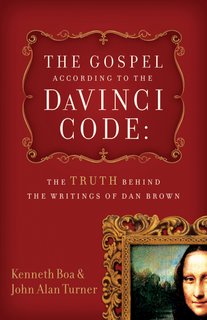Twenty years after Ezekiel's first vision of God's glory, he was still stuck 700 miles from home working among a group of 10,000 exiles. He was 50 years old when God spoke to him again (Ezekiel 40), giving him a vision of a massive temple. Its measurements were not in feet or yards but in miles, and the description of it goes into great detail about the dimension of each wall and gate. It was gigantic.
Then Ezekiel sees "the glory of the God of Israel coming from the east" (43:2). The east, of course, was the direction in which the glory of God had headed 20 years earlier when God had abandoned the temple and focused his redeeming work on the community of his people by the Kebar River.
What he saw next must have overwhelmed Ezekiel with joy: "The glory of the Lord entered the temple through the gate facing east...and the glory of the Lord filled the temple" (43:4-5).
Got the picture? Ezekiel was a desperate, confused and discouraged person who must have wondered what God was doing in his life. But he saw the glory of God and realized that there was no place God could not go and nothing that God does not see.
Then God showed Ezekiel that the focus of his redemptive work for the next 70 years would not be exclusively on the temple in Jerusalem. Certainly, it was still in Jerusalem. Jeremiah shows us that in his Lamentations. But it was also on the 10,000 people near the Kebar River, and it was in the city of Babylon with Daniel and his friends. God is pretty good at multi-tasking.
And God would not abandon his temple forever. There would come a time when his presence would return to the great city, and his glory would fill a new temple. But this new temple would not be like the old one that had been destroyed. It would be massive, beyond any city's ability to contain it, beyond any scale of engineering or imagination. It would be so large that it would become a center of worship for people from every tribe and nation who would turn from their idols and seek the true and living God.
At the risk of making this post too long for most people to read all the way through, if you understand the story of Ezekiel, you'll understand the story of the whole Bible.
The Bible story begins in a garden -- God's place. A man and a woman enjoy the presence and blessings of God there, but they choose to reject him. As a result, they are thrown out of God's place -- east of it, in fact -- just like God's people were thrown out of the city of Jerusalem. And God's place was destroyed; the Garden of Eden is nowhere to be found today. But God was not content to stay in his place and wait for his people to return to him. Rather, he took the initiative and went looking for them. Most of the Bible is a record of God's relentless pursuit of his people.
The story of Jesus is the ultimate example of God coming to this strange and sometimes hostile place in which we live so that those who seek him are able to find him. Six hundred years after Ezekiel's crazy visions, Jerusalem had been rebuilt and a new temple had taken the place of the old one. Jesus of Nazareth -- the one the writer of Hebrews calls "the radiance of God's glory and the exact representation of his being" (Hebrews 1:3) -- came to visit a group of discouraged and confused people who lived under foreign oppression.
One day the radiance of God's glory went to the temple, but he was rejected there. So, the glory of God left the temple, not on a flying platform, but bound and escorted by guards with swords and clubs. The glory of God left Jerusalem, bearing a cross to a place outside the city wall. There he hovered on top of a hill for several hours, drawing people from every nation and tribe to himself.
Of course, on the third day, he arose from the dead. For 40 days he talked to his followers about God's kingdom, and then he went to a mountain east of the city, called the Mount of Olives. He stood on the very spot where Ezekiel had seen the glory of God hovering as the platform left the temple, and then -- as the disciples watched -- he ascended into the presence of the Father.
The glory of God appeared. The glory departed from the city as he was rejected and crucified outside Jerusalem. The glory has returned to the throne in heaven, and the glory of God will come again. That's where the whole story is headed.
And God promises to bring his people back -- not to the Garden of Eden, but to a new creation -- bigger and better than the original ever was. The Bible story points forward to the time when the great exile of human history will be over and God's people will be brought to God's place to enjoy his presence forever. On that day, we'll go one better than Ezekiel. He saw the Lord descend in a vision for a few moments; we'll ascend to meet him in the air and be with him forever.
No matter how great you think that might be, it's sure to be bigger and better than you can even imagine!
